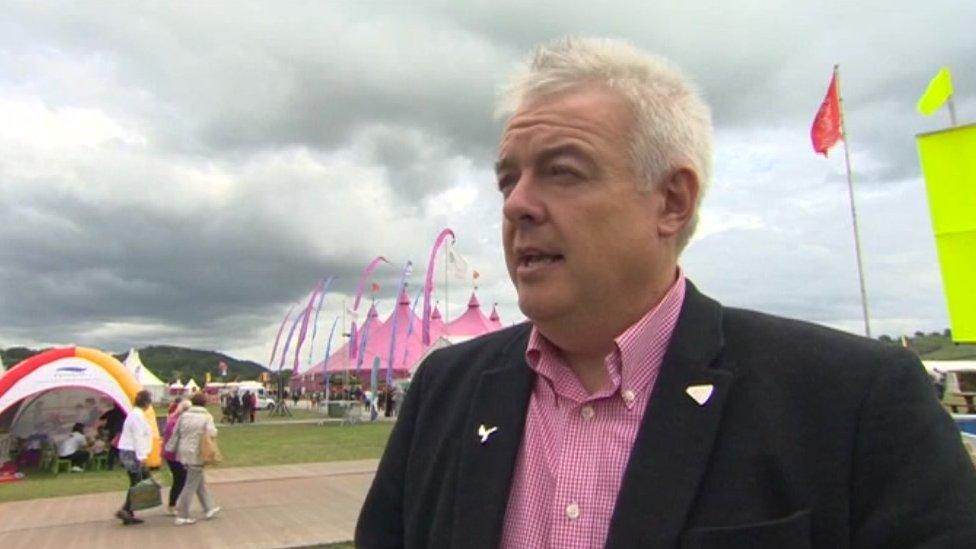School language plan for 1m Welsh speakers target
- Published
- comments
Welsh language minister Alun Davies wants people to enjoy the benefits of being bilingual
Plans to increase Welsh medium education have been set out as part of a target to get one million people speaking Welsh by 2050.
A strategy to double the number of Welsh speakers in the next 30 years has been published by the Welsh Government.
To hit this target, a plan to increase Welsh medium education by a third over the next 14 years has been announced.
The Conservatives said ministers would need to persuade people and communities of the benefits of bilingualism.
Currently 22% of seven-year-olds are being taught in Welsh-medium schools but ministers want it to rise to 30% at every level by 2030.
If the expansion is achieved, it would mark the biggest increase in recent years.
First Minister Carwyn Jones has called on the entire nation to take ownership of the language in order to meet the target.
The pledge has attracted cross-party support at the assembly.
As part of the proposals, pupils in English-medium schools will have to devote more time learning the Welsh language.
The full details will not be known until the new curriculum is finalised before its expected implementation in 2021.
There will be 150 more Welsh-medium nursery groups created over the next decade, as well as plans to recruit significantly more Welsh-speaking teachers in order to cope with demand.
The intention is for 70% of all pupils to be fluent in Welsh by the time they leave school in 2050.
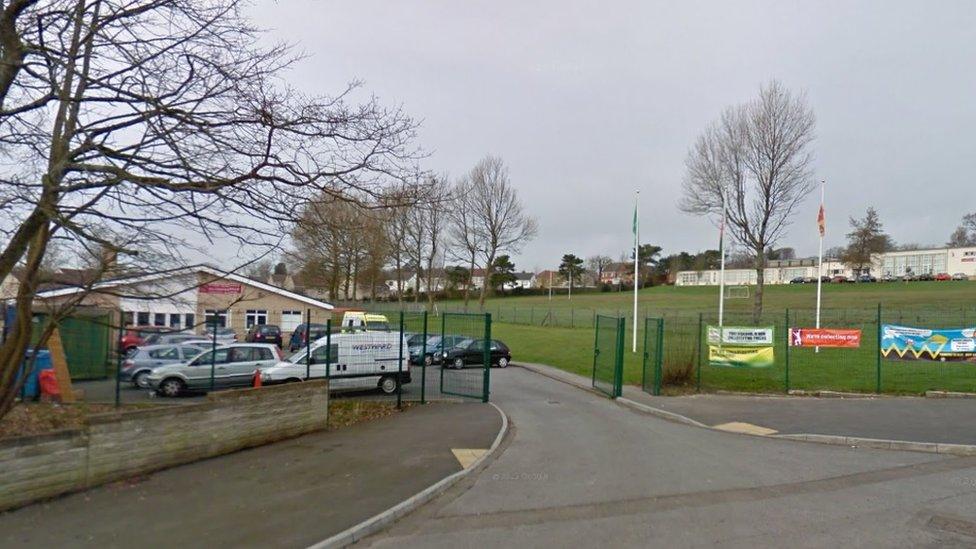
A row blew up over changing Llangennech infant and junior school to a Welsh-medium primary
"Reaching a million speakers is a deliberately ambitious target to so that the Welsh language thrives for future generations," Mr Jones said.
"If we are to succeed, we need the whole nation to take ownership of the language.
"Politicians can't impose that, but politicians can lead. By raising our expectations and adopting an ambitious vision, we have the potential to change the future outlook for the language."
Many of the changes in education provision will be implemented by councils.
'Political football'
Mr Jones said in some schools there would be a shift in the language from English to Welsh, as well as new Welsh-medium schools built to cope with the increase in demand.
He claimed controversy over changes at a school in Llangennech, Carmarthenshire, was "almost the echo of something we saw many years ago".
"For me, the amount of goodwill to the language and support for the language is there among the vast majority of people," he said.
Suzy Davies, Conservative spokeswoman on the Welsh language, said she supported the drive but added: "Success will depend on persuading our different communities, different individuals, why it is so valuable to be bilingual, to have skills in both our languages.
"Clearly, the more pupils learn through the medium of Welsh, or hear and see more Welsh as a normal part of school life, the better the prospect of increasing fluency among the next generation of Welsh speakers. So we do support this.
"But we also need to look at challenges faced by the current generation - in particular, adults in work - and I want to see more opportunities to upskill the Welsh workforce in their actual workplace."
Plaid Cymru AM Sian Gwenllian welcomed the strategy "as a constructive first step" but said ministers must show the "necessary political will and leadership to achieve the aims over a sustained period of time".
She said the 30% target for Welsh medium education by 2031 and 40% by 2050 "even if achieved, is unlikely to be enough" and that the "challenge to the language" stood "side by side with the challenge of defeating poverty".
"In order for the language to survive and thrive, the Welsh Government must ensure that appropriate economic and social conditions exist throughout our nation so that Welsh speakers can stay or return to Welsh speaking communities," she said.
UKIP said it supported the target but warned that if ministers did not put the interests of "parents and communities first" they risked "alienating monoglot English speaking communities".
The campaign group Cymdeithas yr Iaith Gymraeg (Welsh Language Society) claimed the strategy was "weak" and that its measures did not go far enough.
Toni Schiavone, chair of the society's education group, said: "The content of the government's language strategy is far from sufficient if we are to reach a million Welsh speakers.
"Indeed, the targets are lower than those in the strategy they announced seven years ago."
Mr Sciavone said it was also "surprising" there was no mention of a previous government commitment to remove the distinction between Welsh and second language Welsh at GCSE level by 2021.

Analysis by Nick Servini, BBC Wales political editor
Carwyn Jones believes the heat and the divisions surrounding the Welsh language have been consigned to the history books.
This strategy is likely to put that view to the test in a number of communities.
There is no major new funding, so any rise in Welsh-medium education will have to be matched by a corresponding reduction in capacity in English-language schools.
How controversial that proves depends on the role of local authorities who will be crucial in the entire process.
The Welsh Government's "hearts and minds" approach will have to be prepared to deal with complaints that Welsh-medium education is getting the lion's share of new funding.
One of the central pillars of the argument from ministers is that this is not a central government diktat, but a response to the increase in demand for Welsh-medium education across many different communities.
- Published5 July 2017
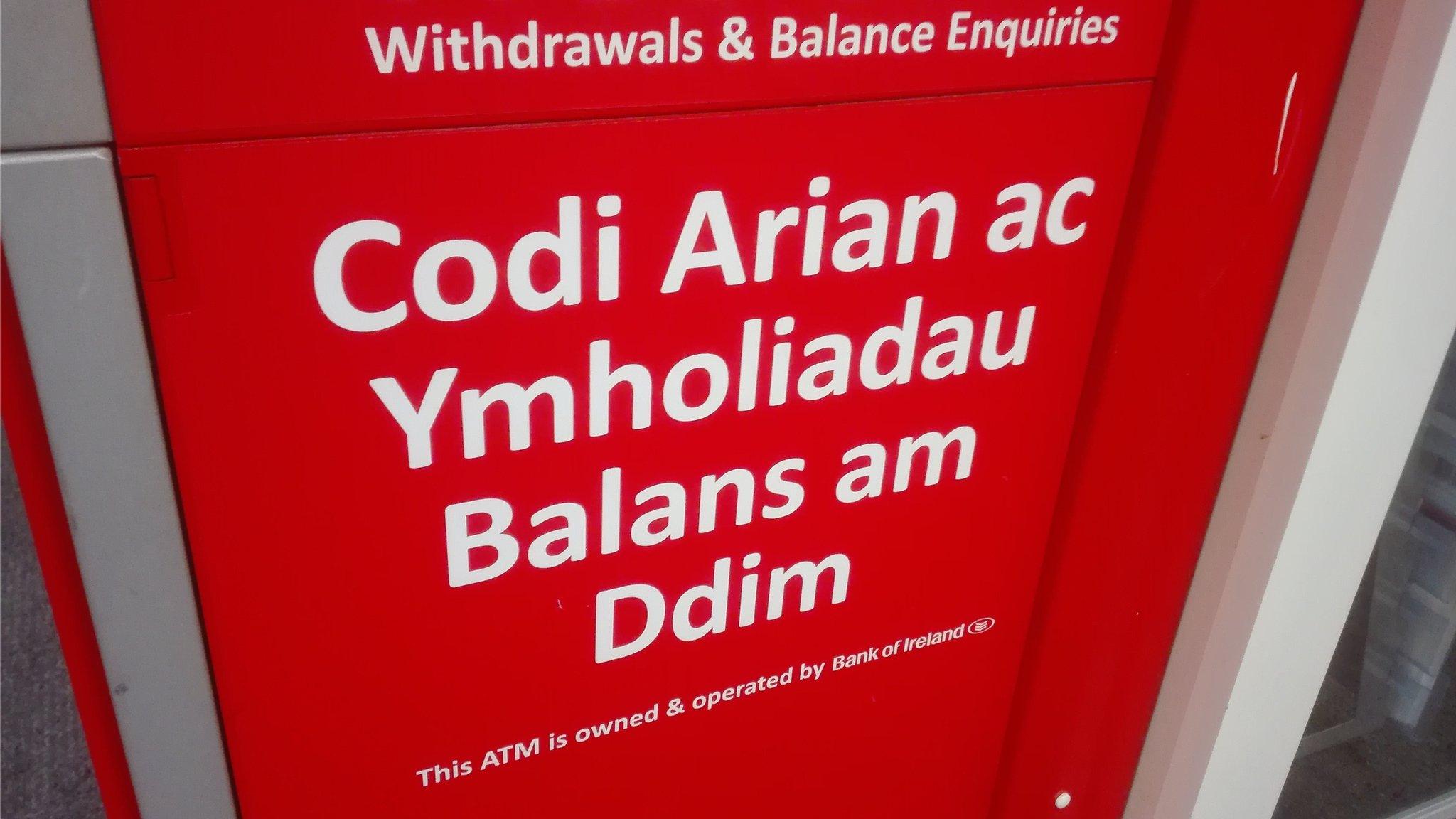
- Published18 May 2017
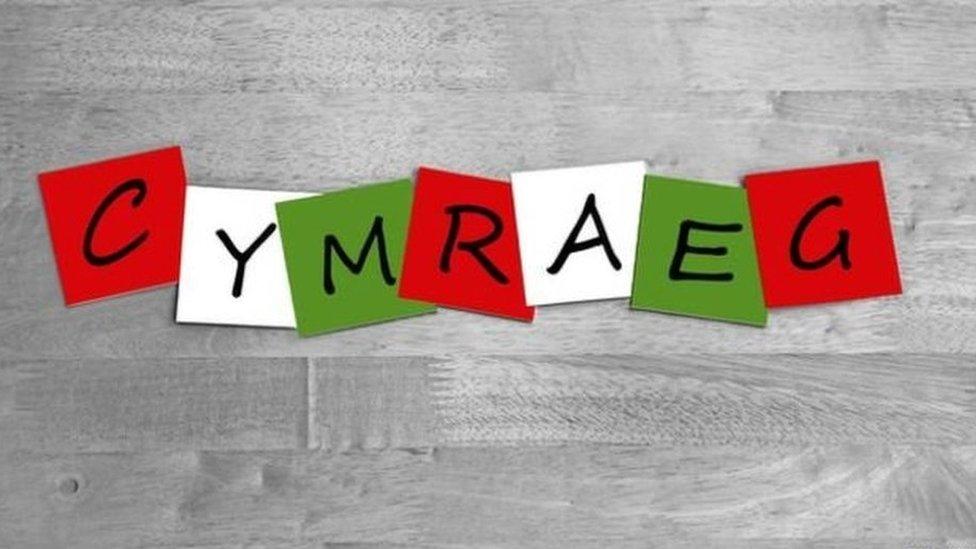
- Published24 February 2017
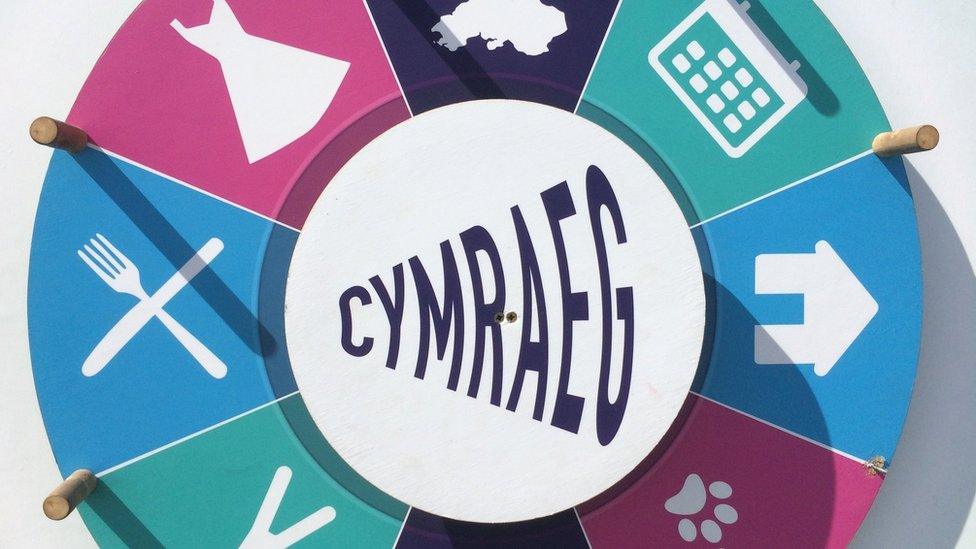
- Published18 January 2017
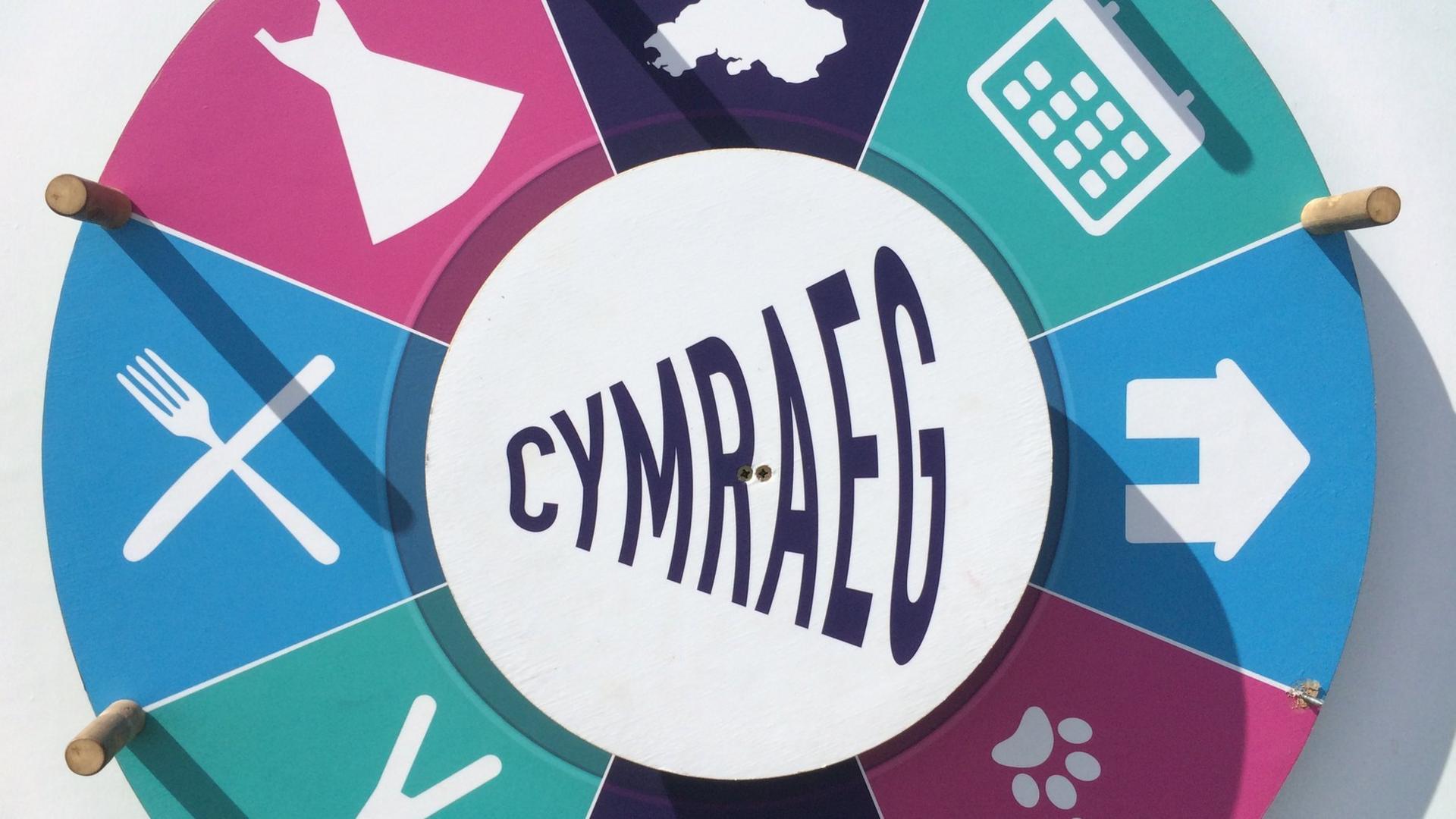
- Published14 February 2017
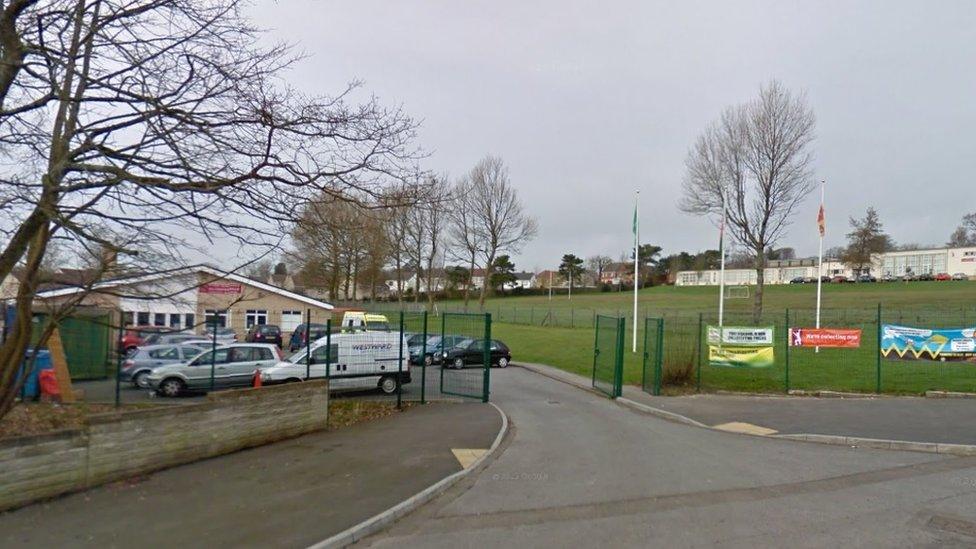
- Published11 January 2017
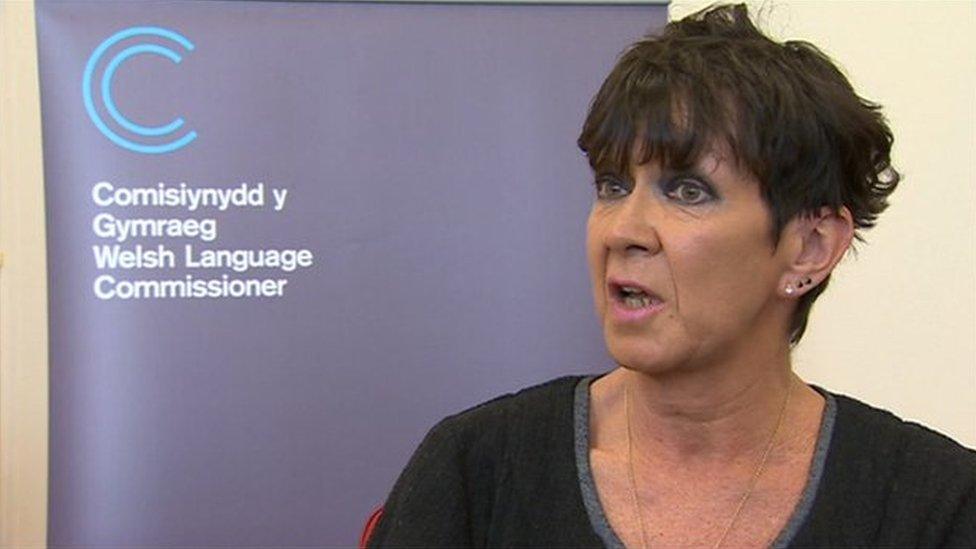
- Published6 January 2017

- Published1 August 2016
